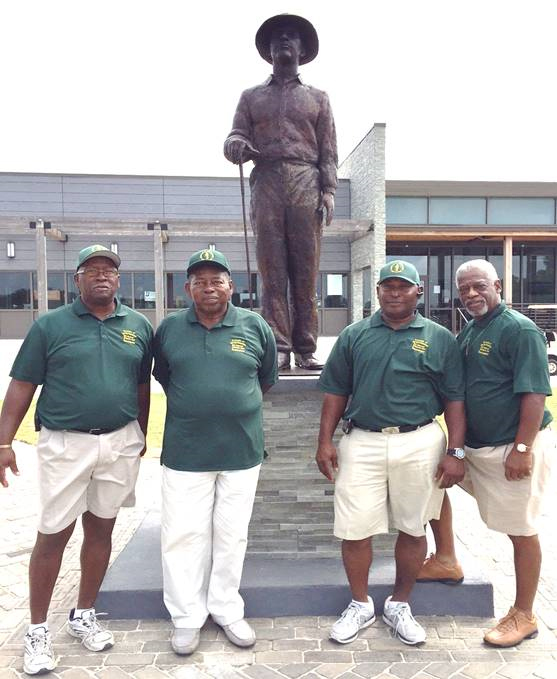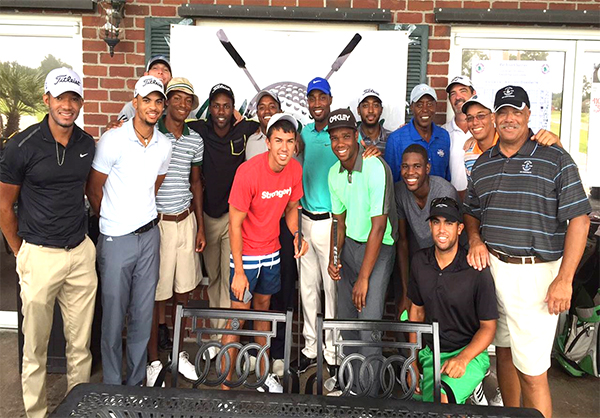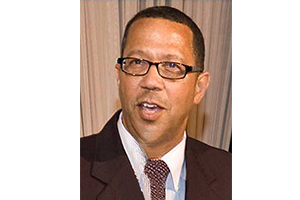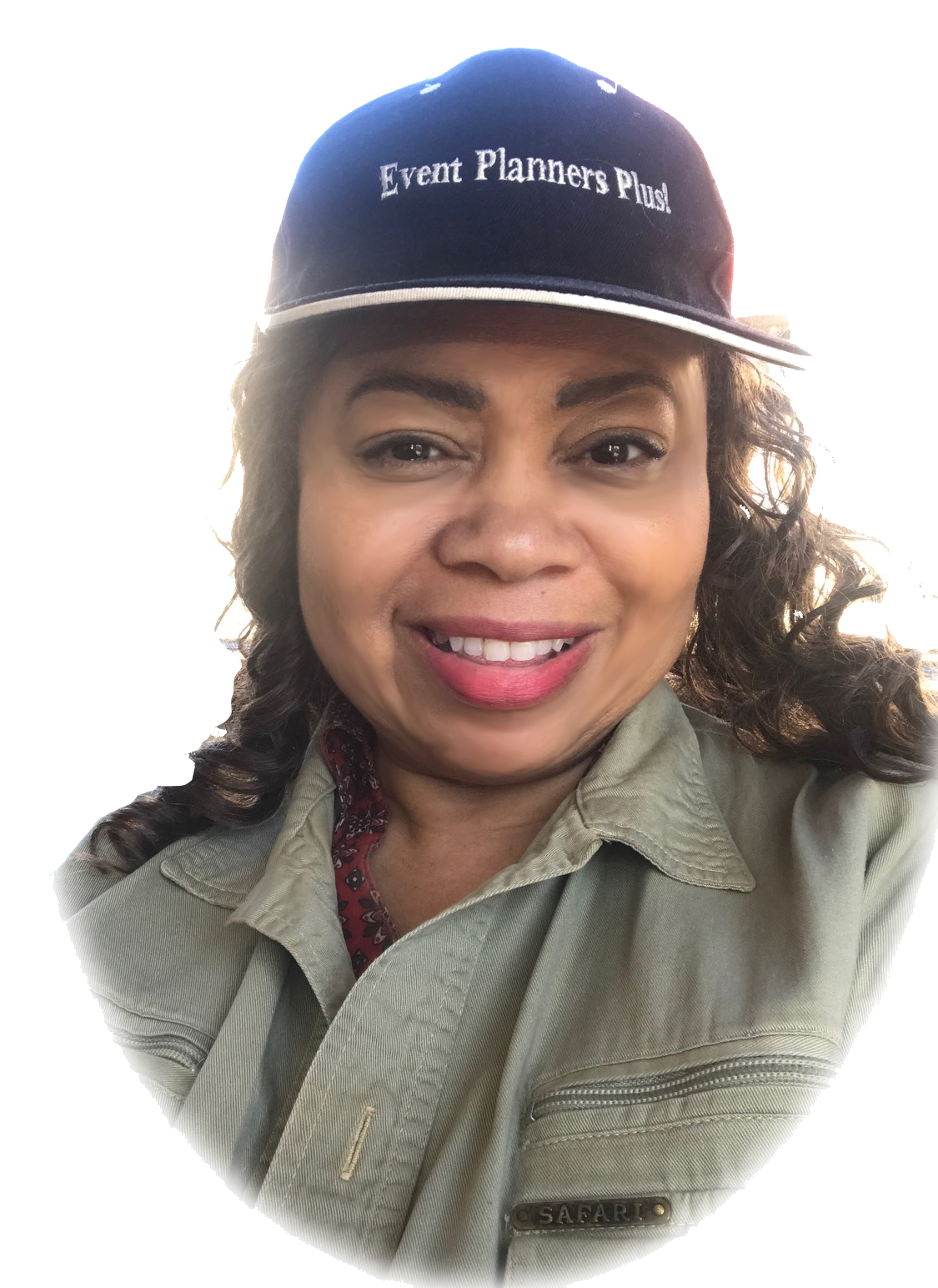The urban golfer is a phrase I use to describe the golfing community I best identify with. Urban does not imply race or ethnicity. Instead, it refers to a cultural experience that is more inner city than suburbia. More diverse, open and inclusive than elite and standoffish. More fun and festive, as opposed to quiet solitude.
In the past month I’ve been privileged to immerse myself in the urban golfer community. June began with the National Black Golf Hall of Fame ceremony in St Augustine, FL. Staff members of the World Golf Hall of Fame were gracious hosts, and guests enjoyed the permanent exhibit honoring “golf’s black history,” created by famous sculptor Mario Chiodo. Honorees included Ethel Funches and Robert ‘Pat’ Ball, both legends from the United Golfers Association (UGA), Jimmy DeVoe, the first African American member of the PGA of America, civil rights activist Gerard Peterson, and the Royal Golf Club. Approximately 150 people attended the celebration, including representatives from the World Golf Foundation, PGA Tour, USGA, and The First Tee. I had the honor of being the emcee for the occasion, and Mr. Chiodo was the keynote speaker.
Mario Chiodo is best known for studying the lives of great humanitarians and turning their inspirational stories into artwork. He’s most famous for creating Remember Them: Champions for Humanity, a series of sculptures that visually depicts the stories of human rights champions past and present. He delivered an inspiring talk, complete with video from his prior work.
During the speech he revealed that a traveling exhibit will soon accompany and compliment the permanent one he created in St Augustine. This will give more people an opportunity to learn and enjoy our history, which has been untold and nearly invisible in the elite, suburbia world of golf. Once complete, the traveling exhibit will help educate and preserve an important piece of American history. It will give new life, honor and dignity to our pioneers and trailblazers, and provide widespread exposure for our deserving champions. Chiodo also announced that the National Black Golf Hall of Fame will have custody of the traveling exhibit, and be responsible for scheduling times, dates and locations.
A ready-made partnership for displaying the exhibit, in my opinion, is with the existing clubs throughout the country who’ve catered to the urban golfer for decades. I recently visited two of these communities while conducting the Advocates Pro Tour. The first was in New Orleans, where we partnered with the Friends of Joseph Bartholomew and the newly renovated Joseph Bartholomew Golf Club.
The golf course is named after its designer and architect, a black man who began caddying around 1890, and through sheer grit and determination worked his way up to greenskeeper, golf professional, golf club maker, and eventually golf course architect. He actually designed golf courses he was not allowed to play, just because he was black.
The weekend began with an unveiling of a statue in honor of the late Joseph Bartholomew, and the Mayor, remaining family members, and local dignitaries welcomed all participants and community members.
 The statue unveiled, along with members of the Friends of Joe Bartholomew Golf Club
The statue unveiled, along with members of the Friends of Joe Bartholomew Golf Club
The culture of the urban golfer was in full-swing in New Orleans, and our hosts treated us to a memorable weekend. ‘Nawlins’ is known for its food, and the tournament sponsors did not disappoint! There were tents on the golf course during play with red beans and rice. Another one had muffulettas. We visited the sponsoring restaurant later that evening and had gumbo (of course), and I tried char-broiled oysters for the first time. Delicious!!!
Inside the clubhouse there were trays of homemade pralines, soft music featuring urban artists such as Earth, Wind & Fire, Luther Vandross and others, cheese grits plus sausage and biscuits during prayer breakfast on Sunday morning. There was plenty of trash talk and friendly competitive banter, too, and the atmosphere was festive and welcoming.
There was great play on the golf course, too, and Willie Mack won the Advocates Pro Tour event by defeating Jerel Whiting with a birdie three on the first hole of a playoff. Both had tied with 10-under par 134 after 36 holes. Mack is originally from Flint, MI. His resume includes a state title and student/athlete at Bethune Cookman University. The victory in New Orleans was his 17th as a professional, and you can bet the house that he’ll earn his way to the PGA Tour in the near future.
The atmosphere in Pensacola the following weekend was very similar. This time the Advocates Pro Tour partnered with Par Four Charities, who celebrated their 40th anniversary with an inspiring banquet, and annual two-day golf tournament at Osceola GC. About 100 amateurs competed, and the pro event had to split play over two area golf courses to assure speedy play and completion. Christian Heavens, a young, talented pro from St. Louis, won the event with a superlative eight-under par total of 134.
Players battled wind, rain, and lightning delays each day, making the golf courses play longer and tougher than normal. On the final hole, Heavens was tied with Kumaiu Johnson, a 22-year old from Tallahassee. Johnson hit the tough finishing hole in regulation, while Heavens missed the green far left, down the slope and in the hazard. His ball was still playable, though, and Heavens pitched it in for birdie three, to win by one shot. It’s was a great finish to a great weekend!
 A group of Advocates Pro Tour members pose following play in Pensacola, Florida
A group of Advocates Pro Tour members pose following play in Pensacola, Florida
Front row starting with crouched down in red t-shirt and golf club is Jarred Garcia, Wesley Yates with Oakley cap and golf club, Kumaiu Johnson, Justin Still (kneeling) and Adrian Stills. Second row left-to-right is Shepard Archie, Maurice Jeffries, Denis Minefee (amateur who plays at FAMU), Christian Heavens, Montrele Wells, Clay Myers, Jerel Whiting, Jesse Allen, Joey Stills (hugging Adrian). He’a also an amateur attending West Florida University. Third and final row is Kyle Sapp (head shot between Maurice and Denis) and Ben Bates (head shot between Jesse and Justin).
Finally, I coordinated and participated in two weeklong teen golf camps in June. Both were held at Rogers Park GC in Tampa, a shrine for the urban golfer. Rogers Park is named after GD Rogers, a highly successful black businessman and humanitarian from the late 1930s through the 1950s. Opened in 1952, the golf course was once the only place in Central Florida available to golfers of color, and today it still has the reputation as the place to play and celebrate the traditions of the urban golfer. We host the Mid-Winter Golf Classic each March, which has been a customary destination for our folks since the early 1960s.
The June camps averaged 15 teens each week, and special guests included representatives from the Hillsborough County Public School District, the eighth largest in America, physical fitness experts, sports psychologists, and a motivational speaker. In addition to golf skills and daily play, we discussed leadership principles, goal setting, and planning for the future.
On one afternoon a couple of our older participants met the golf coach from Bethune Cookman University, and he signed one of our best young men to start classes/golf this August. On another occasion, TJ Heidel, the Head Pro at Rogers Park who grew up in our youth programs, gave an informative tour of the facilities and explained what it takes to run golf operations, and (possibly) find a job within the industry. One camp participant, entering his senior year of high school, was hired on the spot, and his life could well be changed as a result.
All in all, June was a great month, and I thoroughly enjoyed being part of the urban golfer community. I always do!
I’ll continue to expound on this concept in future blogs. Please connect and share your stories as an urban golfer. I’m convinced that we are the future of the game of golf and its industry.
Send Michael a Comment!
 ABOUT MICHAEL COOPER, PH.D.
ABOUT MICHAEL COOPER, PH.D.
Dr. Michael W. Cooper is the former Director of Diversity for the World Golf Foundation/The First Tee and past Assistant Dean/Campus Director for Springfield College-Tampa Bay campus. Contact him at mcooper2@springfieldcollege.edu.


